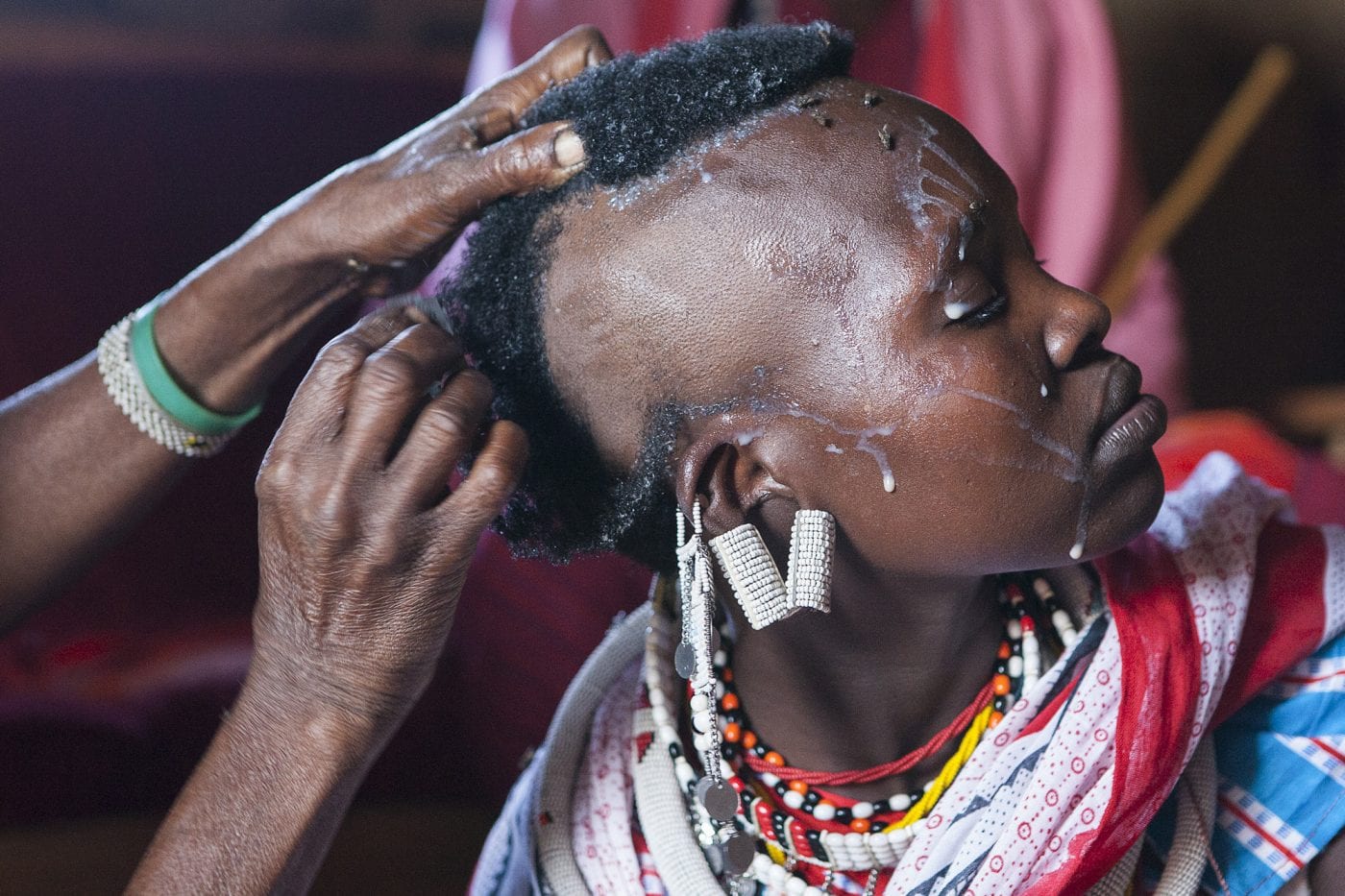“Extinguish the Light of FGM -female genital mutilation-. Kindle the light of education.” is the phrase chanted by girls of a Maasai community in Magadi, southern Kenya.
Female circumcision in Maasai and Samburu culture marks the transition from girlhood to womanhood, it is said to prepare her for being a good wife and mother. However, seeing as the ritual has serious health consequences and makes sexual activities highly painful, circumcision has been illegal in Kenya since 2011: it can cause death and increases the risk of sepsis, fistulas and vaginal prolapse. But despite the ban, it has been very difficult for local government and NGO’s to convince the Maasai and Samburu to create an alternative Rite of Passage. Until very recently, 98% of all girls on Loita Hills were circumcised. To end this violence, the movement for change has to come from people inside the communities.
Circumcision is a community decision, so it’s not a matter of changing one persons’ mind, it’s a matter of changing perception of people at all levels of Maasai community. Therefor, some nine years ago, local NGO’s have started giving trainings to elders, young men, mothers and young girls about the consequences of FGM. Convinced about the importance of this cause, these peers are now going around singing and performing songs in their own language and villages, old songs which have been updated about ending female genital mutilation. Afterwards, the girls talk to their own community members to further promote change, whilst upholding the respect and pride for their own culture. Encouraging people to change one part of Maasai culture, does not mean that they have to give up everything that makes them proud to be Maasai. As one woman educated told The Guardian in 2014: “They come to us in a proper way, in our own language. They are one of us so we know they would not trick us.”
However, only talking about the importance of banning circumcision isn’t enough. The ritual is of such significance, it had to be replaced by something else in order for Maasai women to feel ready for womanhood and be accepted by their communities. This is a scary and long process, but already over 13,300 Maasai and Samburu girls have now received the alternative rite of passage. First of all, the alternative entails that the girls experience all the elements of the ceremony, accept the part where they are being cut. She has her had shaven and is given a bracelet as a symbol for her graduation, but instead of being cut she has milk poured on her thighs. When she reappears she is wearing the traditional headdress signifying her womanhood.
On top of this, the alternative ceremony is staged in such a way that the whole community takes part. During ceremony, some male members hold banners with messages, such as ‘We are against early marriage’. In the past, most Maasai and Samburu girls were married while still children, soon after being mutilated upon reaching puberty, and often dropped out of school as a result. During the Alternative Rite of Passage ceremony, Maasai elders give girls a book and a pen to encourage them to continue their education. By accepting a blanket, given by the girls, the cultural leaders pledge that they will neither accept the mutilation of the girls, nor early marriage.
Depending on the area and specific communities, girls ‘ready’ for marriage go into between 2 and 5 days of retreat with other girls receiving education about their rights as women, sexual health and adolescent development. This also means the undoing of many centuries of rumours about the clitoris: that it makes the girls who refuse circumcision dirty and prostitutes, that it will grow as big as your ears and that you can’t have babies if you still have a clitoris. Not all girls who return home after such education are supported by their families, especially their fathers. The Maasai community is strongly patriarchal, and fathers have final say over their household, where disobedience is almost unimaginable. More so, Maasai men can even refuse speaking or interacting with a Maasai woman who hasn’t been cut. Superstition has it that marrying an uncut woman can bring misfortune upon your family; therefor uncut women are forbidden from picking vegetables and pick up water in fear of crops dying and rivers drying up. It is thus very important to change these stories, the taboo of marrying an uncut woman and have Maasai men involved to create a long lasting change.
Step by step, and with the help of many communities’ peers, local non-profits, are slowly seeing a change in numbers. Whereas about 98% of Maasai and Samburu girls in Kenya underwent the circumcision in 2010, this has decreased to 68% percent in the last 8 years. However, the UN is seeking complete eradication of female genital mutilation by 2030.

